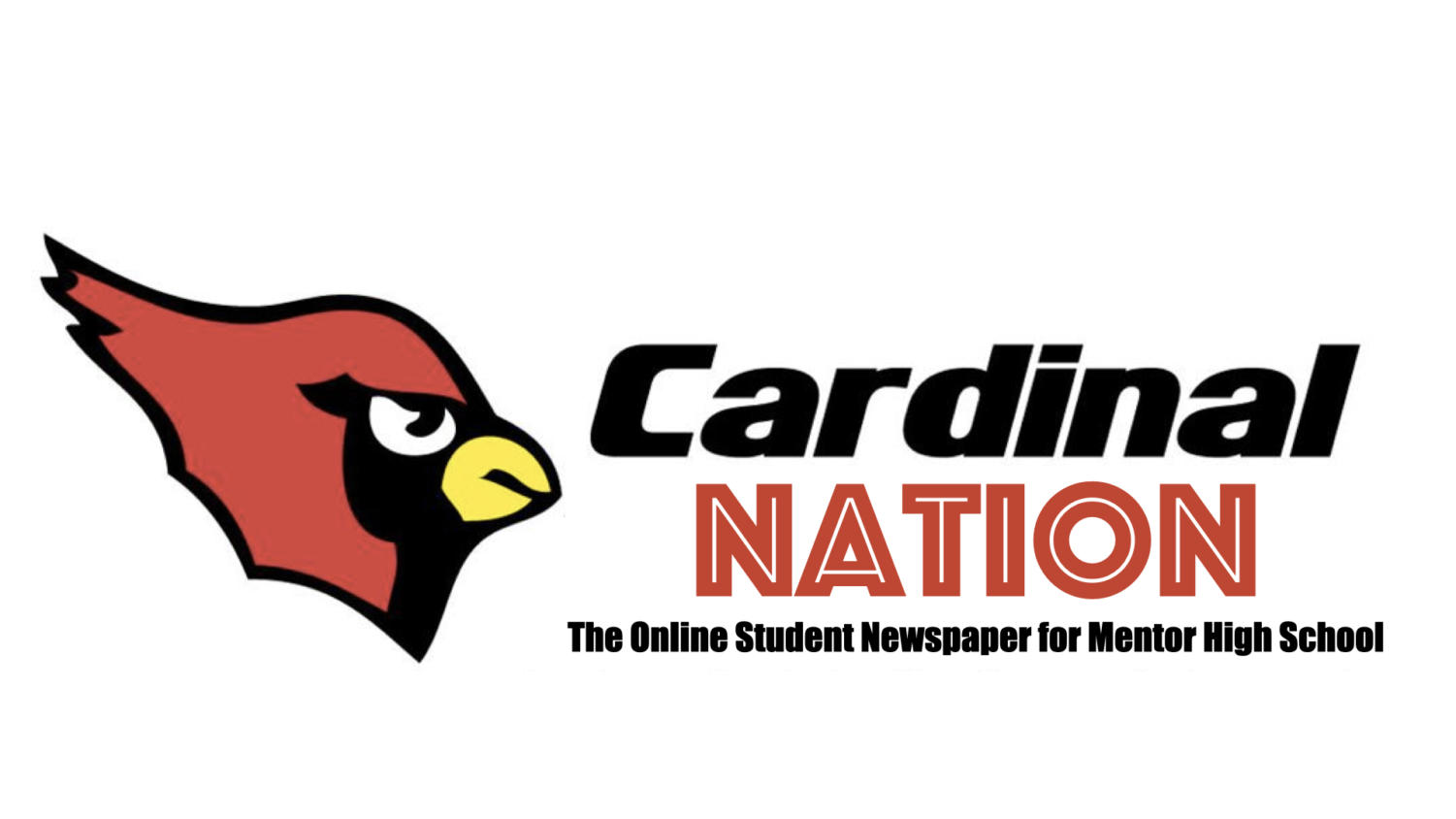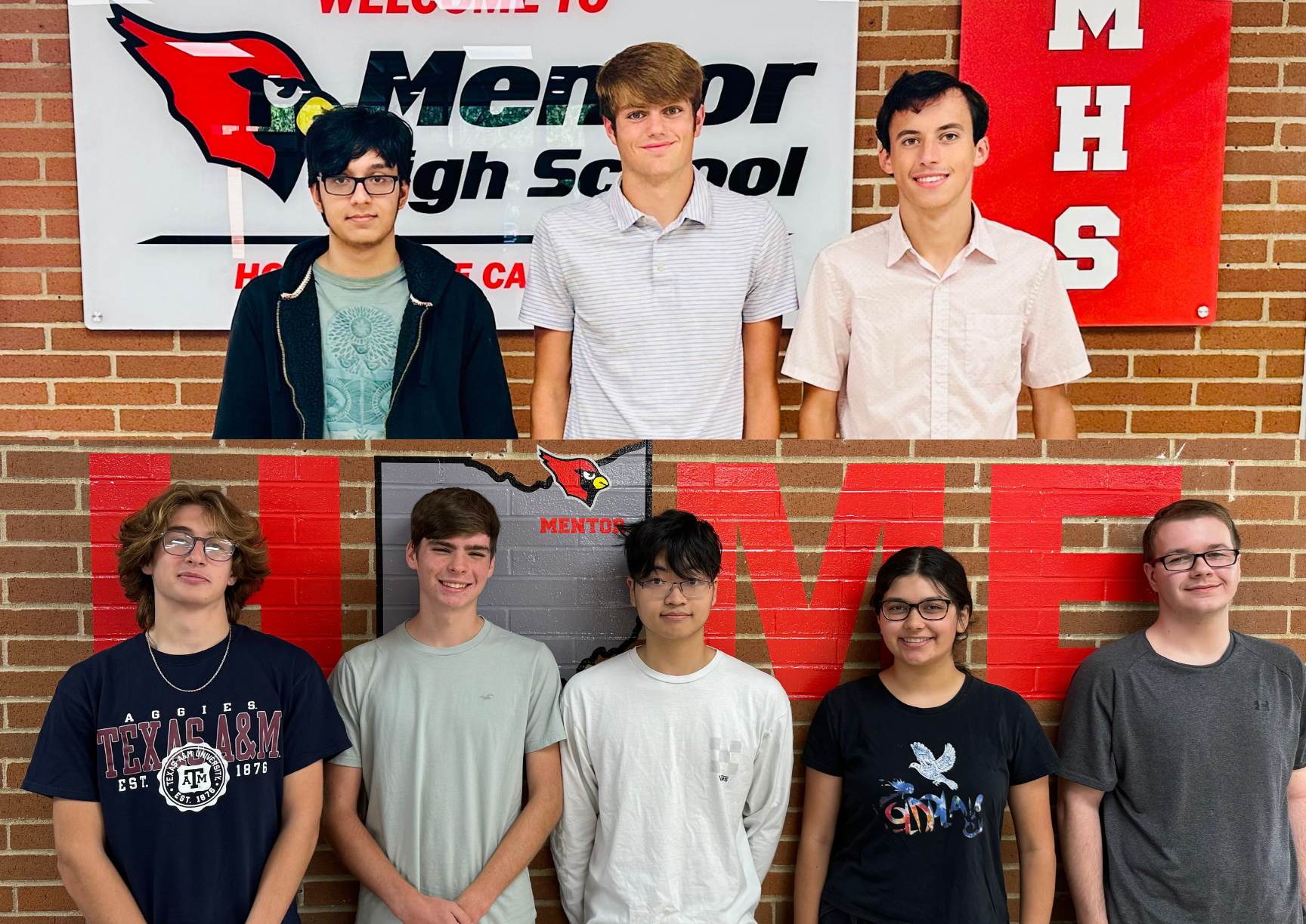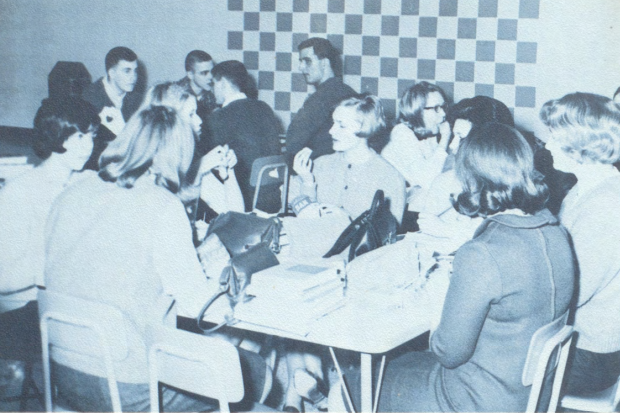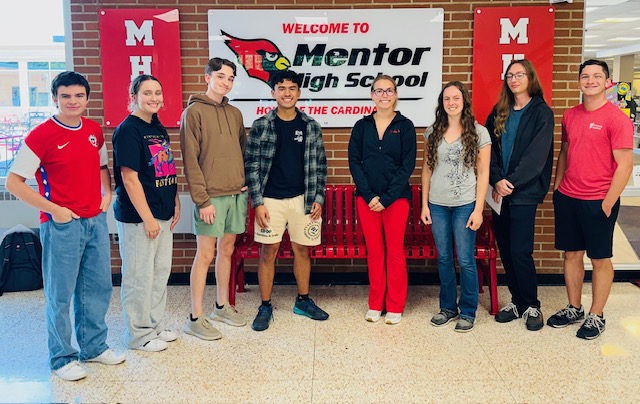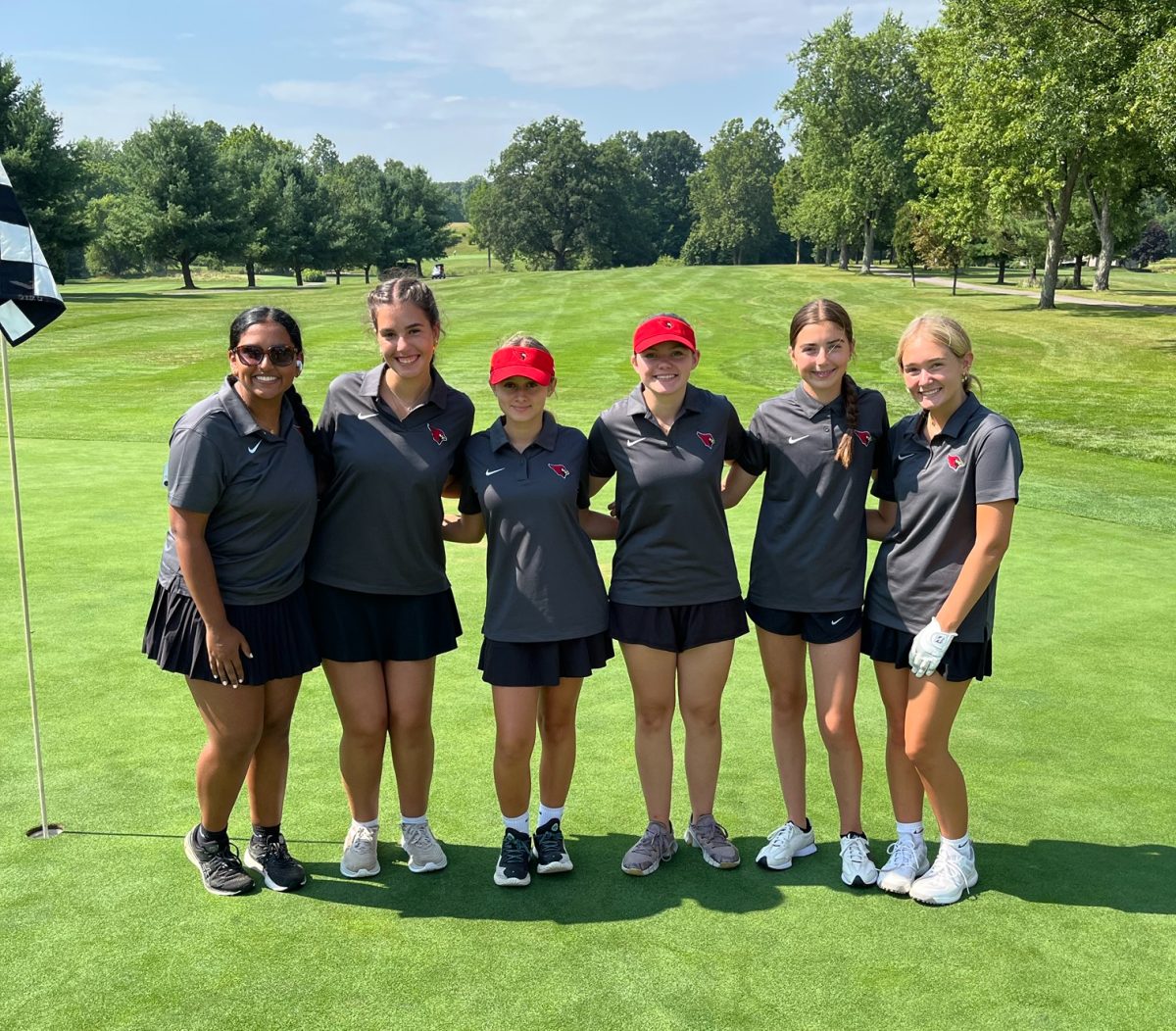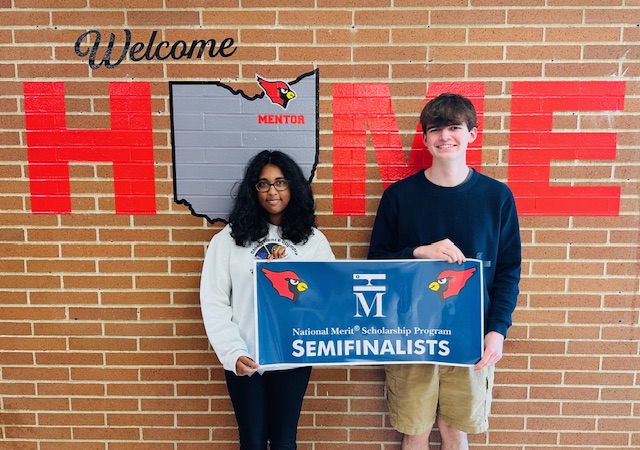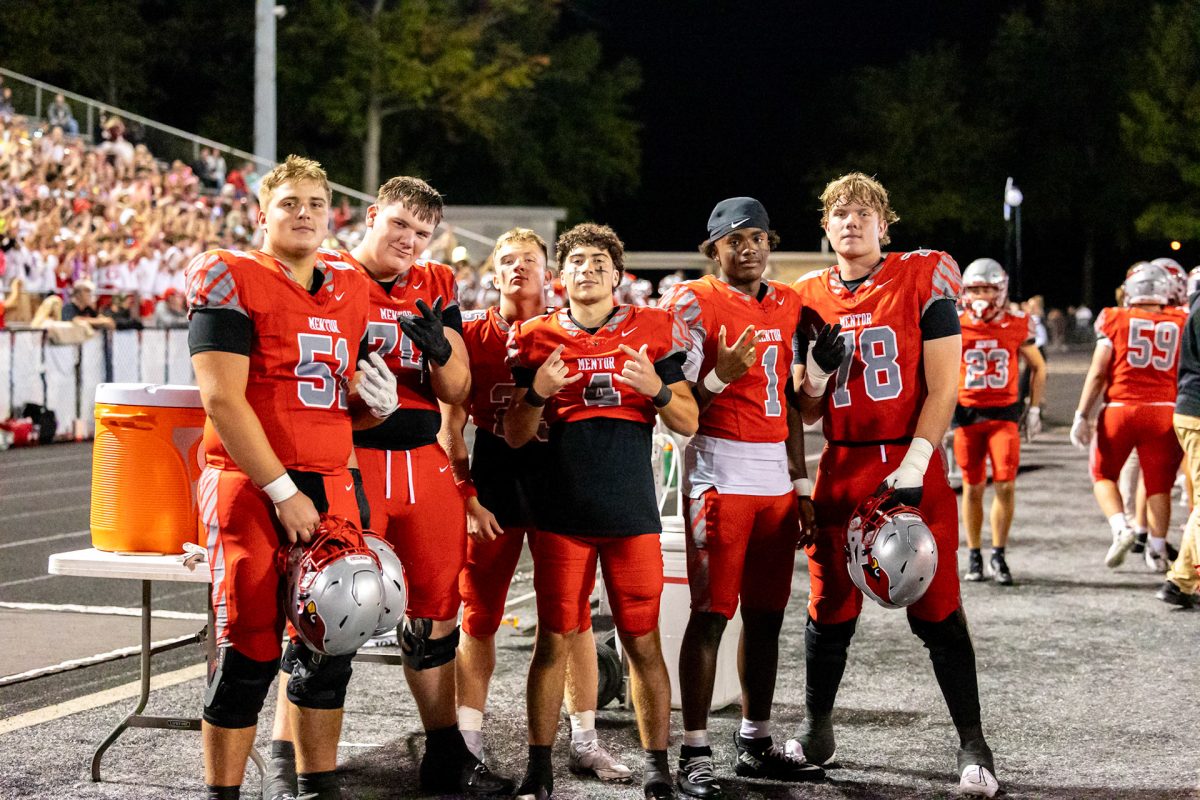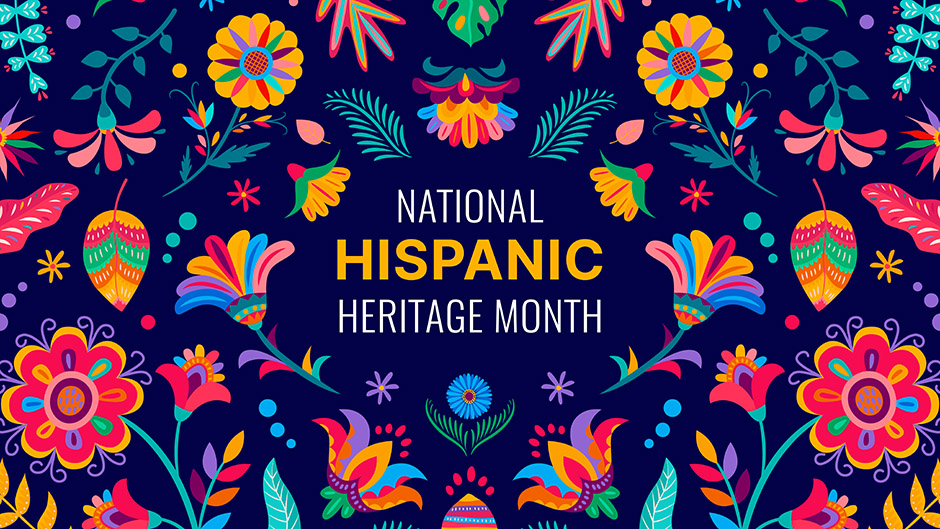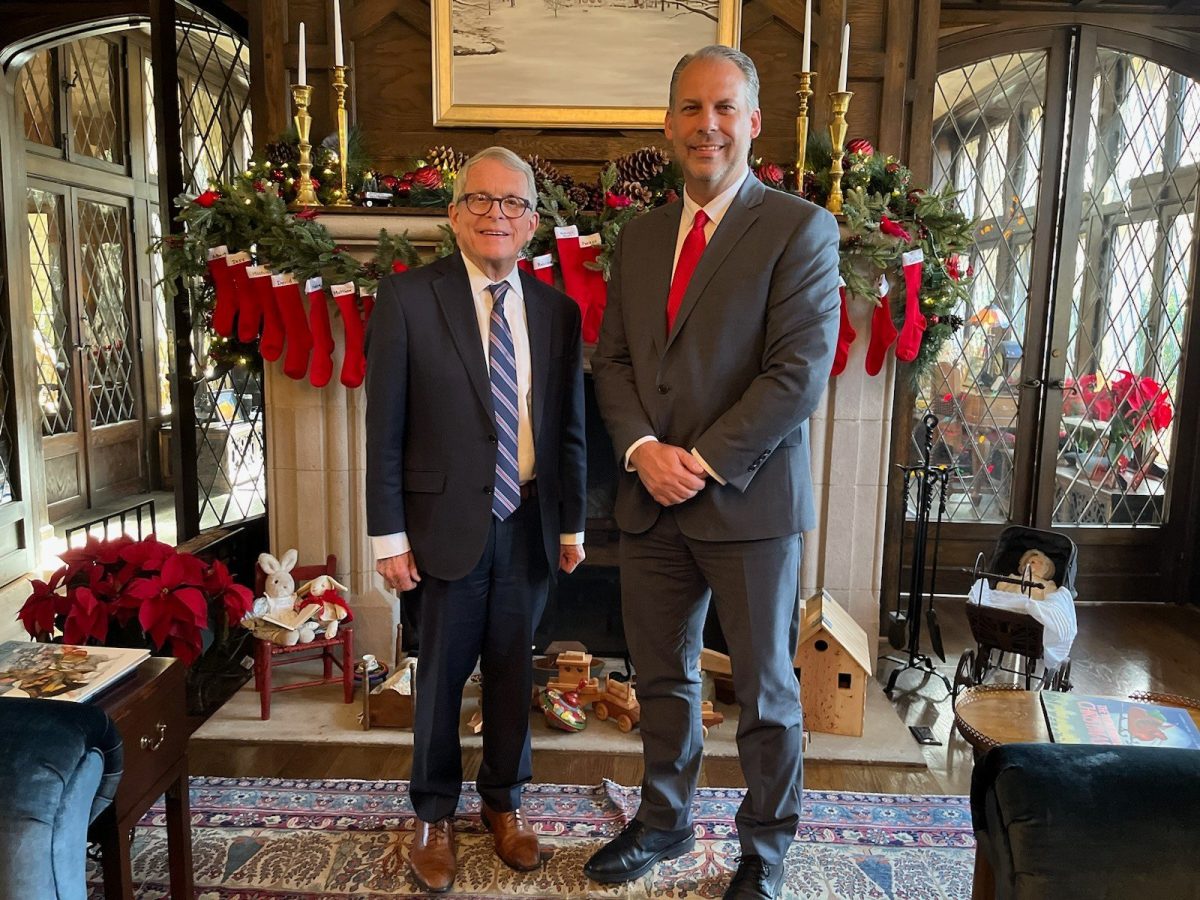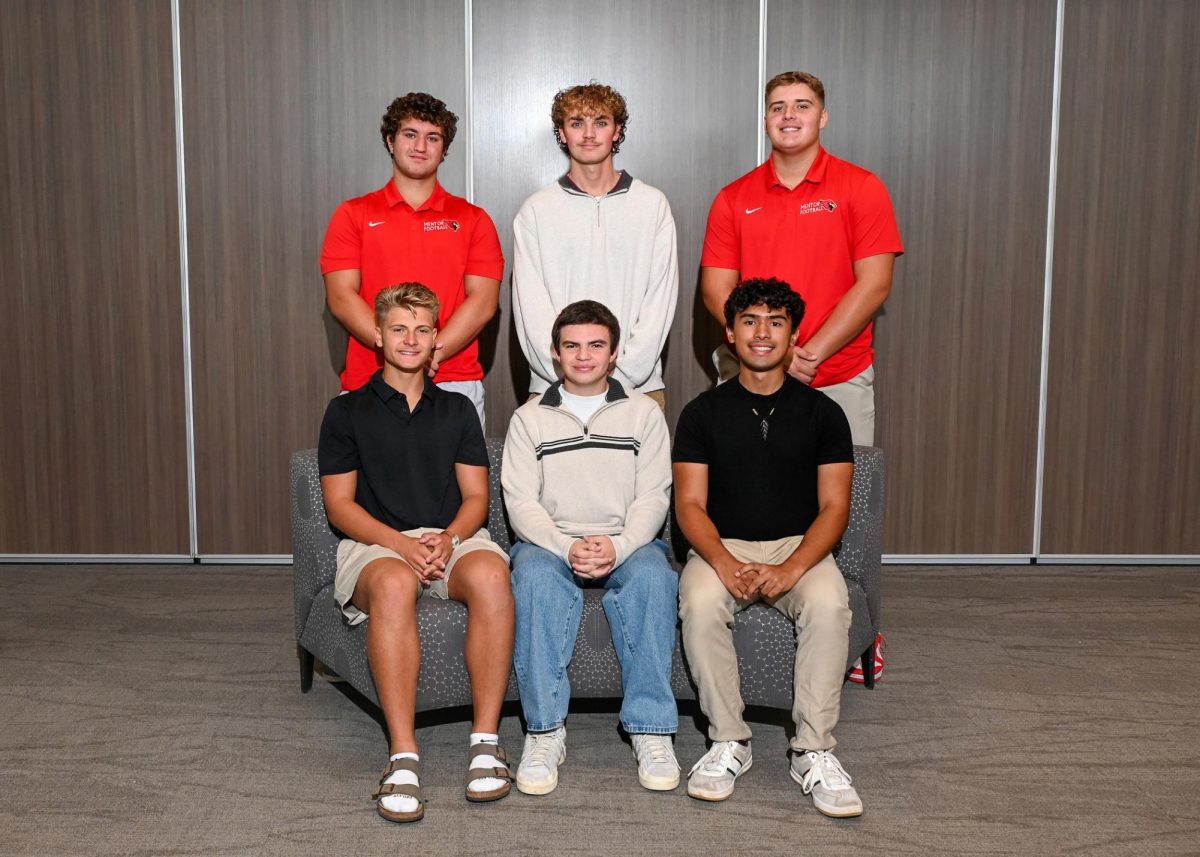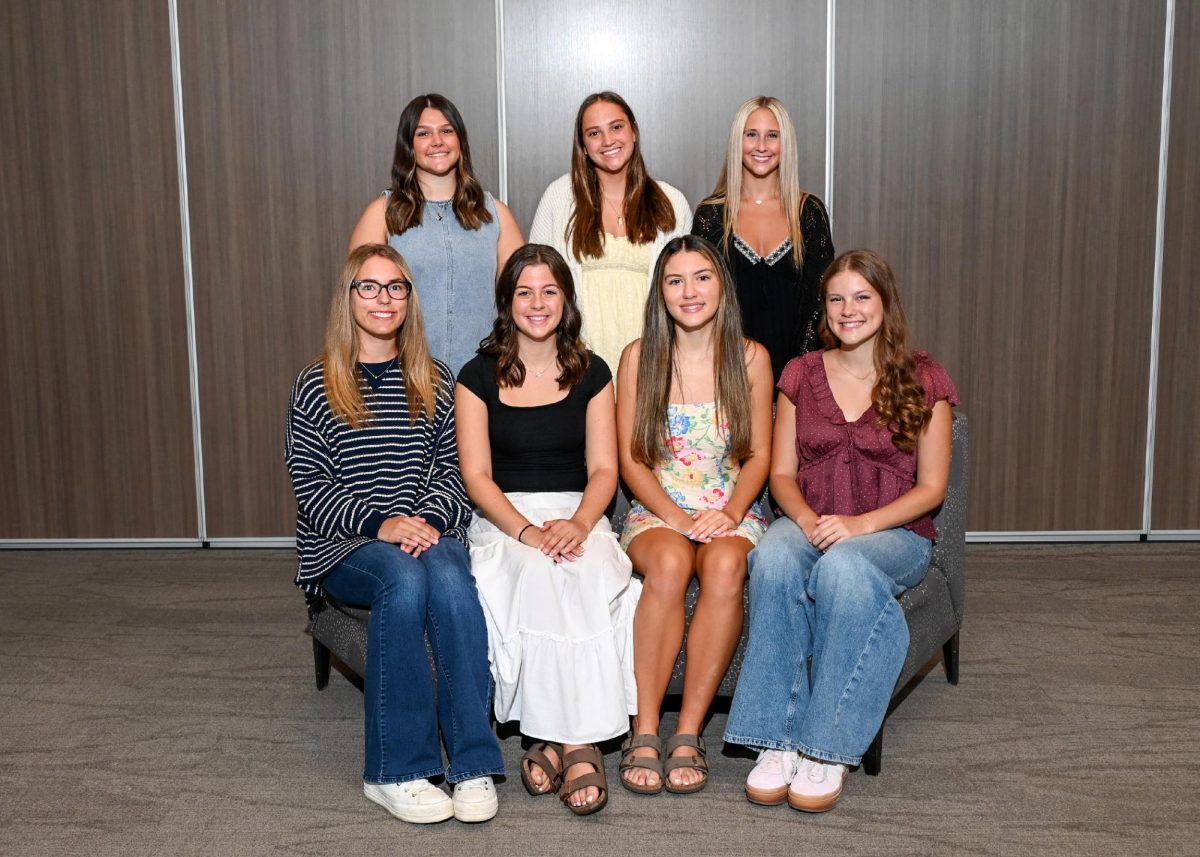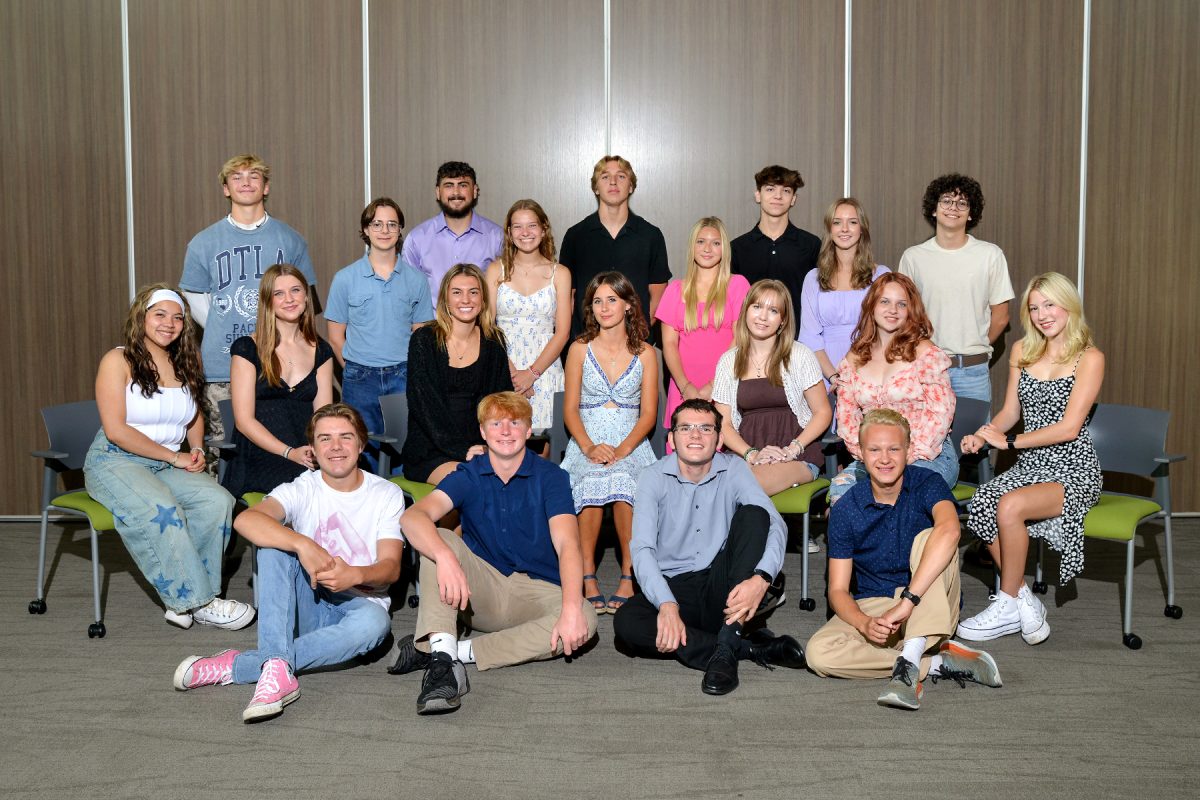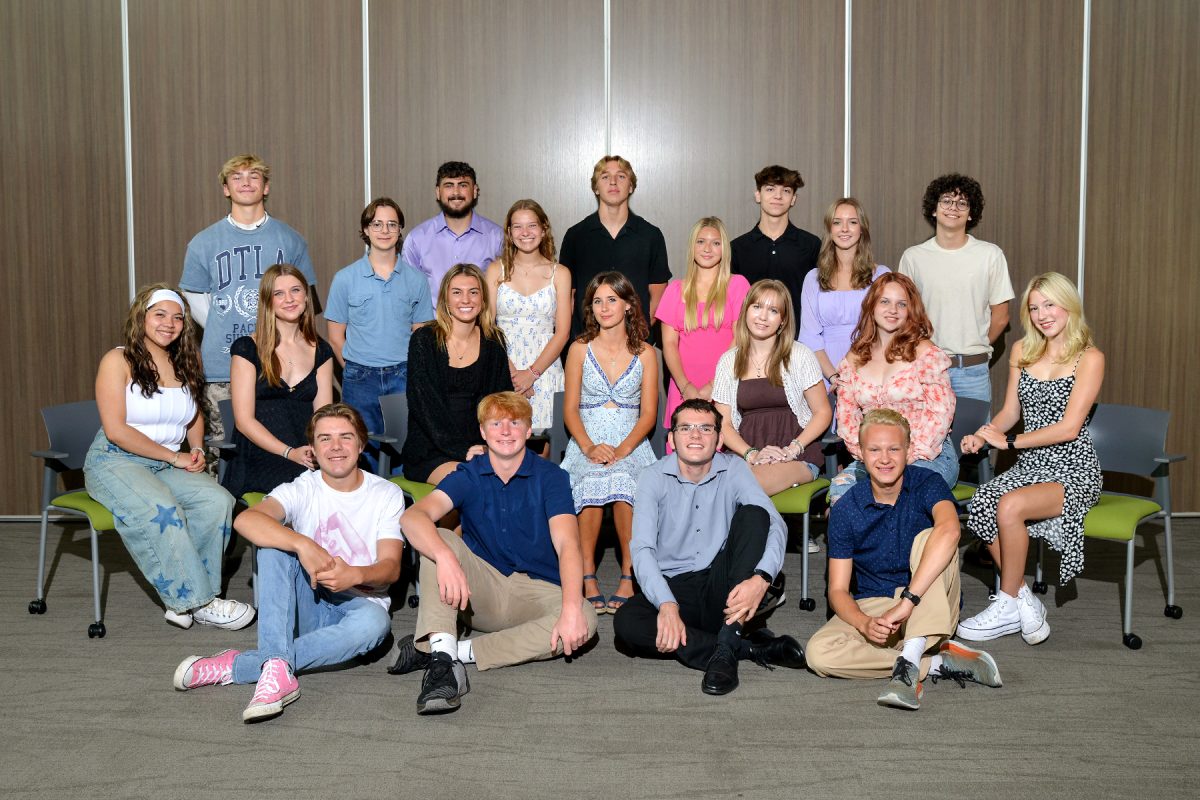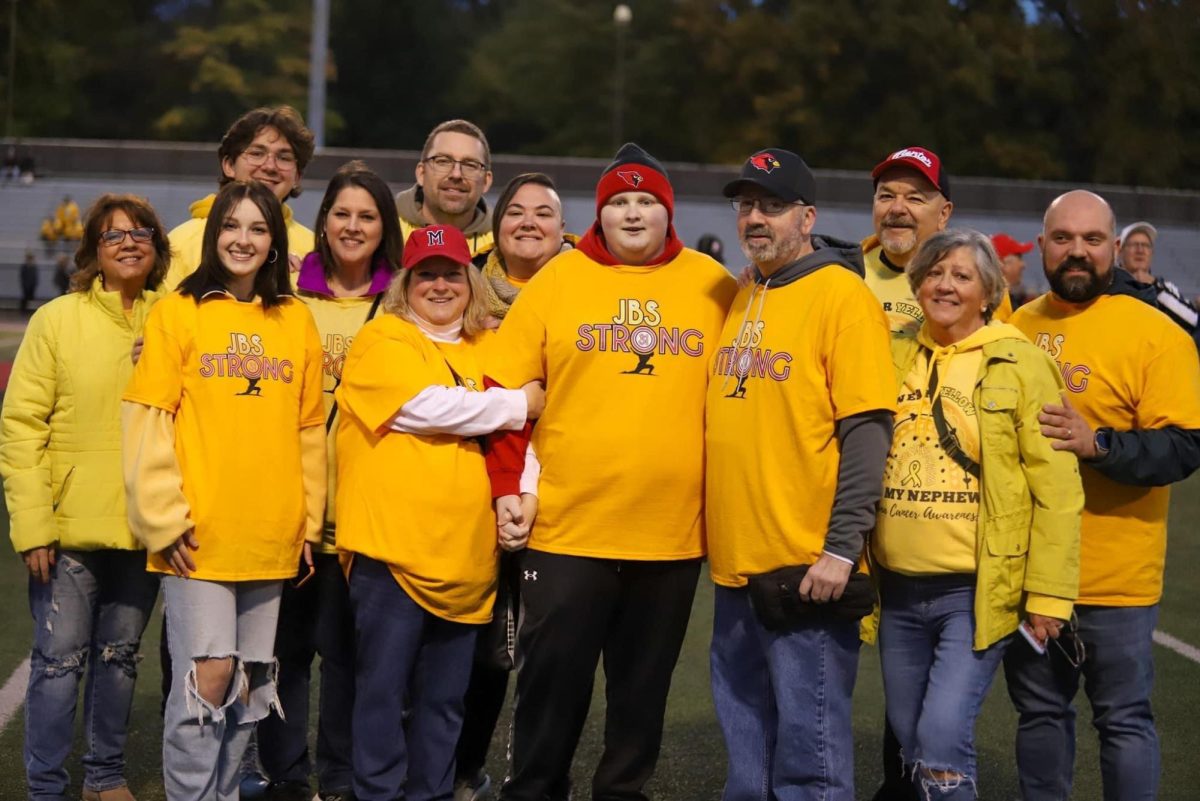Founded in 1955, the National Merit Scholarship Program is an annual academic competition for high school students. Students enter by taking the Preliminary SAT/National Merit Scholarship Qualifying Test (more commonly known as the PSAT/NMSQT) in the fall of their junior year. Mentor administers the exam annually in October — along with the PSAT 8/9 and PSAT 10 — to prepare students for the SAT, a standardized assessment utilized by college admissions.

Each year, the National Merit Scholarship Corporation (NMSC) names high-scoring PSAT/NMSQT students National Merit Semifinalists and Commended Students based on their Selection Index. For the Class of 2025 in Ohio, the minimum index to qualify as a Semifinalist was 217. The Selection Index differs for each state and is based on the state’s fraction of the nation’s total graduating high school seniors. The Commended Selection Index, 208, is based on a national threshold rather than on a state-by-state basis.
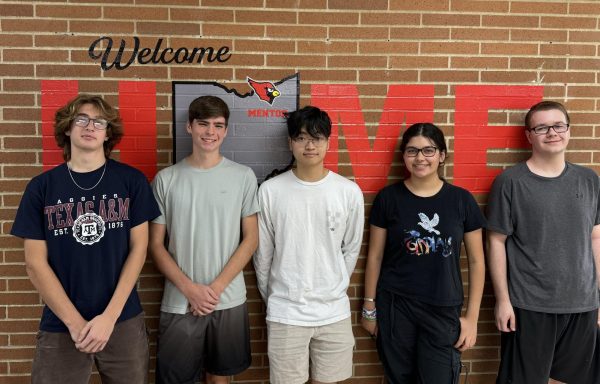
Around 1.3 million eligible students take the PSAT/NMSQT annually, and the top 16,000 (less than one percent of the nation’s graduating seniors) are named Semifinalists by the NMSC. The remaining top 34,000 test takers (within the top four percent) are named Commended Students.
After receiving their distinctions, Semifinalists and Commended Students begin competing for their stake in numerous “Special Scholarships” offered by NMSC’s sponsors, which are comprised of a number of corporations and colleges. After meeting several additional requirements and surpassing an extensive application process, Semifinalists join the ranks of around 15,000 Finalists who compete for one of 2,500 National Merit $2,500 Scholarships. Semifinalists are notified of their advancement status in February, while all scholarship winners are named in March.
This year, the following MHS students were recognized as part of the top PSAT/NMSQT scorers in the nation by the National Merit Scholarship Corporation:
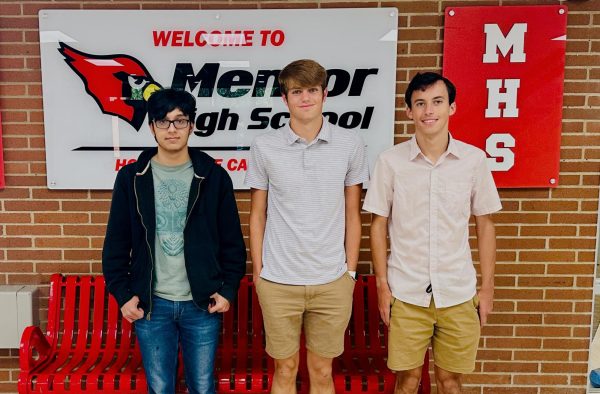
| Semifinalists |
| Brian Mignogna |
| Mark Pastore |
| Zahran Shams |
| Commended Students |
| Ryan Chen |
| Adam Shaner |
| Luca Spataro |
| Matthew Suhar |
| Anushree Zimmerman |
Cardinal Nation was able to speak with some of our Semifinalists and Commended Students about their National Merit Recognition.
Cardinal Nation: What does earning this distinction mean to you?
Mignogna: Earning this distinction means a lot to me. I feel very honored and grateful to see this kind of recognition, and I personally feel that going into college still will be an achievement I can remain proud of.
Pastore: Earning this distinction means a lot to me because it is something that I did not think that I could achieve originally, as I worried about where I would stack up when compared to all of the students in the nation. However, in earning this distinction, I am able to prove that I am able to compete with individuals around the nation and represent the school, the county, the state, and the country at large.
Shams: Earning this distinction signifies to me my academic accomplishment, and shows the effort I put into my studies.
Shaner: This score means a lot for me towards the work I put in preparing for this test, and it has shown me that hard work really does pay off.
Zimmerman: It means a lot to me due to the amount of effort I put into studying for it. I wanted to get a good score on the PSAT due to my own aspirations and also the benefit of gaining a merit scholarship to help put me through college.
Cardinal Nation: What activities are you involved in at MHS?
Mignogna: I am a varsity runner in the cross country and track teams at Mentor High, and I am also a part of MUN, NHS, and Cardinal Nation.
Pastore: I am involved in Mentor High’s cross country team, track and field team, Science Olympiad team, varsity band and am the president of the National Honors Society.
Shams: I am most actively involved in Science Olympiad, Math League, and Linguistics Club.
Shaner: I’m involved with Soccer and NHS.
Zimmerman: I’m involved with Math League, Science Olympiad, Indian Student Association, Mentor Theatre, NHS, and Mannheim.
Cardinal Nation: What are your plans after high school?
Mignogna: After high school, I plan to major in accounting or finance and pursue a bachelor’s or master’s degree, and I am looking to later become a CPA.
Pastore: My plans for after high school are to major in either biomedical or chemical engineering at an undecided university.
Shams: After high school, I plan to attend college and pursue a mathematics major, potentially with a computer science minor.
Shaner: After high school, I plan to attend a university and major in chemical engineering to complete at least my master’s.
Zimmerman: I plan to attend college and gain a master’s or PhD in computer science.
Cardinal Nation: How did you prepare for the PSAT/NMSQT?
Mignogna: I prepared for the PSAT primarily through the practice English tests offered in AP Lang, which helped me to review certain grammar and reading comprehension skills that helped me on the test.
Pastore: I prepared for the PSAT/NMSQT by looking over Khan Academy practices and examples in the week prior, and really trying to work on the areas that I felt that I was weak in. For me, this meant doing a lot more focusing on English, which is something that I would probably recommend for anyone trying to get this award because English is more heavily weighted than the math sections.
Shams: In order to prepare for the PSAT/NMSQT, the main methods I used involved repetitive practice of prior exams and sample tests, in addition to reviewing the concepts I did not comprehend fully. Most of my focus was in English, as it is my weaker subject, but I still made sure to practice math tests to refresh my memory on concepts I may have moved past from.
Shaner: I studied where I messed up on my past PSAT and I used the online resources available to me, such as Khan Academy.
Zimmerman: I studied for hours the night before [the test], utilizing College Board’s resources and physical textbooks to improve my weak points in English.
Cardinal Nation: What advice do you have for underclassmen?
Mignogna: My advice would be to pay attention if any teachers go over PSAT or SAT prep, and to practice if you feel you need it, but also to not stress too much on the actual test day. If you feel you have done well and consistently have done well in practice, trust in yourself and trust that you will do well on the actual test.
Pastore: My advice for underclassmen is to spend as much time as you can doing things that are meaningful to you and also never count yourself out of competition just because you don’t feel you’re good enough. In the end, hard work will always beat talent.
Shams: Advice I have for underclassmen is to study in the way that helps you best, and make sure that you do in fact study. Just take a practice test or two, see how you do and what you did wrong.
Shaner: One major piece of advice I would give to the underclassman would be to take all of the PSAT tests seriously. Even if the scores don’t really matter for the first year, if you try on these tests you can use the experience to correct your mistakes and really push for a great score on the NMSQT.
Zimmerman: Put in time to study for the PSAT as it can help not only with earning money for college but also improving your basics in grammar and math.
